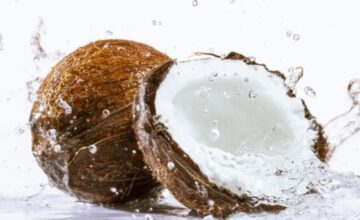
Does your skin look rejuvenated and refreshed after you have sloughed off dead skin cells from its surface?
Well, exfoliation is an essential step in your skin care regime and can do wonders if done right.
But, too much of this ‘good thing’ can cause more harm to your skin than good.
Whether you opt for physical exfoliants or chemical ones, over-exfoliation can damage your skin to an extent that might take a while to heal.
Here’s everything you need to know about over -exfoliation.
What happens to over-exfoliated skin?
Exfoliation boosts the turnover of your skin cells. So when you exfoliate, new cells come up at the surface of your skin. This makes your skin look younger, gives it a better texture and evens out your complexion. However, if you have exfoliated too much or too frequently you will damage the new cells at the skin surface even before they have settled in. This may result in one or more of the following symptoms:
1. Redness and irritation
If your skin looks very red, chances are you have overdone the exfoliation. It may also be accompanied by itchiness or burning sensation. Too much scrubbing or peeling of your skin can make it feel raw and irritated.
2. Swelling and puffiness
If you notice swelling or puffiness in the exfoliated area you may have affected the lipid layer of your skin. The lipid layer in your skin locks in the moisture and protects your skin from the elements. Damage to the lipid layer can make your skin more sensitive and vulnerable.
3. Hypersensitive skin
Over-exfoliation can make your skin extremely sensitive. Your skin can have adverse reactions from certain products which you may tolerate well otherwise. If you have overdone the exfoliation, you should also avoid using strong cleansers and vitamin A products (retinol, retinoids, etc.) apart from other physical or chemical exfoliants till your skin is healed completely.
4. Too dry or even too oily
The natural oil secreted from your skin not only gives you the radiance but also has a protective effect on your skin. Over-exfoliation strips the natural oil of your skin, making it look dry and flaky. But if you have oily skin, you may think exfoliating more will end your woes, but you can’t be more wrong! Your skin starts producing excess oil to compensate for the unusual dryness caused by over-exfoliation.
5. More breakouts
Yes you heard it right, excessive exfoliation can aggravate your acne situation in the following ways:
- The protective barrier function of the skin is damaged, allowing acne causing germs to wreak havoc on your skin.
- Excessive scrubbing or peeling can increase inflammation leading to more breakouts.
- Increased oil production due to over-exfoliation can clog your pores which again translates to more pimples and blackheads.
6. Waxy, tight skin
If your skin has an unhealthy waxy shine on it or it feels very tight and dehydrated, chances are you have over-exfoliated it. Healthy, hydrated skin is supple, radiant and soft to touch. But if the topmost layer of your skin is damaged, there is heightened water loss and your skin looks thin and taut.
How to heal over-exfoliated skin?
- Use an ice pack to soothe the inflammation and irritation.
- You can also use aloe vera gel cooled in a refrigerator to help soothe your skin.
- Moisturise your skin using a gentle, fragrance-free moisturiser.
- You can use lotions containing ceramides to help heal the protective barrier of your skin.
- Adding a vitamin C serum can help your skin heal faster.
- You can also use a hydrocortisone cream or lotion to help relieve redness and irritation.
If you have severe pain, swelling or inflammation, take anti-inflammatory medication as prescribed by your doctor.




